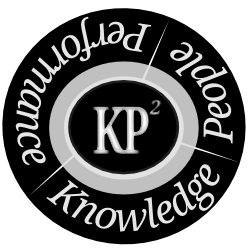Call for Talks
A core component of the programme will be a lightning talks session in which each participant will make a two-minute presentation on their research. The session will be lively and dynamic. Each presentation must be exactly two minutes long, making use of necessary, interesting, appropriate, or entertaining visual or sound aids, and condensing a whole Ph.D’s worth of ideas and work into this short slot.
Participants will be able to join workshops in:
- network analysis;
- bibliographic software;
- data visualisation;
- linked data.
There will be talks on:
- user studies and social research;
- discourse analysis in science and technology;
- how to get your work published;
- how to apply for research funding.
There will also be two keynote talks given by speakers whose work marks the leading edge of technology in scholarship and practice. The speakers will be:
- Steven Scrivener (University of Arts London): Design research and creative production
- Melissa Terras (UCL): Digitisation of cultural heritage and image processing
Finally, the symposium will conclude with an unconference; a participatory, collaborative, and informal event in which the form and content is decided on by participants as it unfolds and in which discussion and production is emphasised over presentation and analysis. Participants may wish to share their own skills, learn a new skill, establish and develop a collaborative project, or hold a focused discussion.
Tag: sna
The most prolific authors in the field of social network analysis
Below is an account of the most prolific authors in the field of social network analysis as recorded by Otte and Rousseau in 2002. The authors were ranked according to the numbers of publications in the Sociological Abstracts database. I have linked the names to the researchers’ websites and included their Twitter accounts, if avaible, in parentheses. Alternatively, you can also visit their profiles on the INSNA website. If you know of any more recent references or are aware of similar studies from different academic disciplines, I would certainly love to hear from you. Similarly, I would like to know whether I’ve missed anyone who’s already on Twitter.
Wellman, Barry (
Skvoretz, John
Bonacich, Phillip
Everett, Martin G.
Willer, David
Burt, Ronald S.
Friedkin, Noah E.
Borgatti, Stephen P. (@ittagroB)
Johnsen, Eugene C.
Faust, Katherine
Otte, E., & Rousseau, R. (2002). Social network analysis: a powerful strategy, also for the information sciences. Journal of Information Science, 28(6), 441.
The History of Social Network Analysis
While I did come across a lot of technical writing about social network analysis to this date, I wasn’t lucky enough to stumble upon the works of Linton C. Freeman and Steve Borgatti until fairly recently. Professor Freeman has written a complete book on the Development of Social Network Analysis and Professor Borgatti and his colleagues have published a paper that serves as an overview to Network Analysis in the Social Sciences. Both are worth a read and I thought I’d share the links with you. Enjoy!
Workshop: Business Applications of Social Network Analysis
- The role of data mining techniques in identifying scalable methods for the extraction and organization of social relations for management research and business practice
- The role of management research in guiding data mining efforts and SNA metrics development towards theoretically-grounded discoveries about social network emergence.
- The role of Social Network Analysis in developing and applying metrics and tools for the mapping, evaluation, visualization, and design of social relations in organizations.
Common Applications of Social Network Analysis
So far, I throroughly enjoyed everything I read by Rob Cross. He provides hands-on experience on how to use social network analysis within organizations. In his book The hidden power of social networks he even provides a step-by-step guide and sample questionnaires on how to conduct your own analyses.
According to Professor Cross, the more common applications of social network analysis include:
- Supporting partnerships and alliances
- Assessing strategy execution
- Improving strategic decision making in top leadership teams
- Integrating networks across core processes
- Promoting innovation
- Ensuring integration post-merger or large-sclae change
- Developing communities of practice
Can you recommend any further applied writings on the subject? If so, I’d be happy to hear from you. Please drop me a line.

